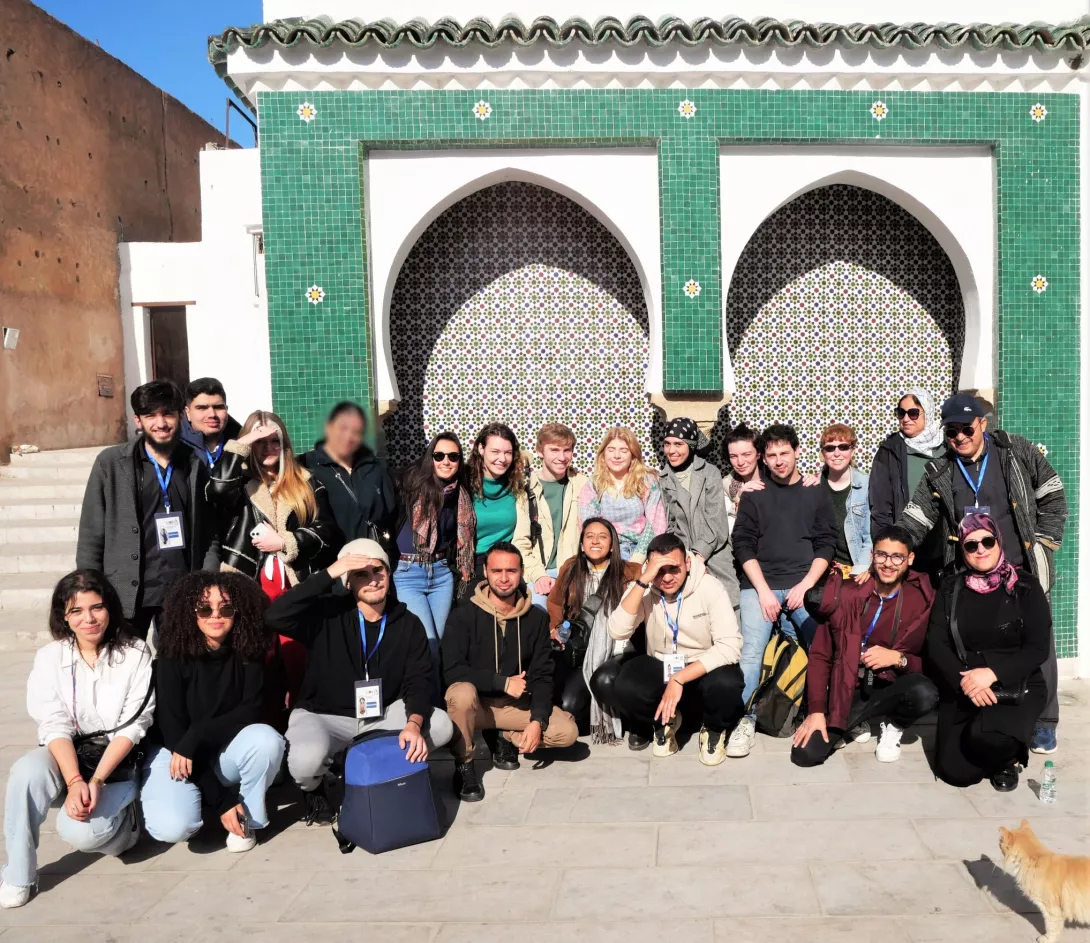Crossed perspectives (Regards Croisés in French) is an exchange project aimed at discovering a southern country. For this first year, FUCID was in partnership with the Aïn Chock Faculty of Sciences of Hassan II University in Casablanca. The idea was to organise two trips, one to Morocco and the other to Belgium, for a moment of exchange and learning around a central theme chosen by the students, who had decided to work on the issues of culture and identity. They had to create two videos, one on racism and the other on sexism, and then broadcast them to external audiences. This involved not only creative work in the making of the video but also reflection. Indeed, it was necessary to be able to establish links but also differences between the situations of the two countries in relation to the theme. Each group had also prepared the project through thematic training and activities designed to create a group spirit.

Beyond the initial objective of raising awareness, the students participating in the Crossed perspectives project also had an intercultural experience and were enriched by the discovery of a foreign culture. The programme included a "recreational" part with cultural activities and a "theoretical" part with meetings with the civil society of the host country. In Belgium, the Moroccan students visited several associations related to the theme: Femmes de Droit (an association supporting women's rights and other vulnerable groups), Unia (which fights against racism) and CAI (an intercultural action centre that organises activities on culture shock).
Mounia Ammara and Yousra Sbaoui, doctoral students in biological sciences at the Aïn Chock Faculty of Sciences at Hassan II University, offered to talk about their experience with FUCID.
How did you come to participate in the Crossed perspectives project?
Yousra : It was a colleague who told me about the project and explained what it was about. He told me that the University of Namur, and more precisely FUCID, was looking for motivated students to participate in a cultural exchange programme. We attended several meetings with one of the three people in charge. It was then that I was able to get information about the project and its objectives.
Mounia: It's the same for me. It was a colleague who came to see me to tell me that there was going to be an exchange between the University of Namur and Hassan II University. Having a minimum of information about the project and wanting to discover the country where my father had studied, it was an opportunity to visit Belgium. It was with a spirit of adventure that I embarked on the project with the desire to discover the culture of this country and its gastronomy.
What do you remember about this experience and your time at UNamur?
Yousra : When the Belgian students came to Morocco, there was an immediate chemistry within the group. We all got along very well and everyone was on the same wavelength. We come from different specialities and fields but that gave us even more energy and passion to continue with the project.
Mounia: It was an enriching experience on all levels, whether it was personal or professional, with the visit to the university laboratories, but also associative, because we were able to meet many associations. In Morocco, we really have this art of welcoming. We made enormous efforts to make them feel at home because the culture shock can sometimes be difficult. We had quite a few fears about this and finally, everything went well. The choice of families was made by drawing lots and as we say, it was "the perfect match"! Back home, we have this stereotype that people from Europe are cold and unwelcoming, but not at all! I hope that the capsules that are going to come out will please and that they can show that this kind of exchange can only bring good things.
